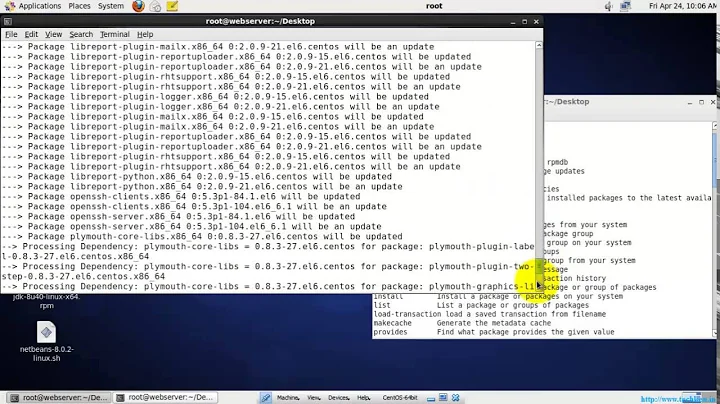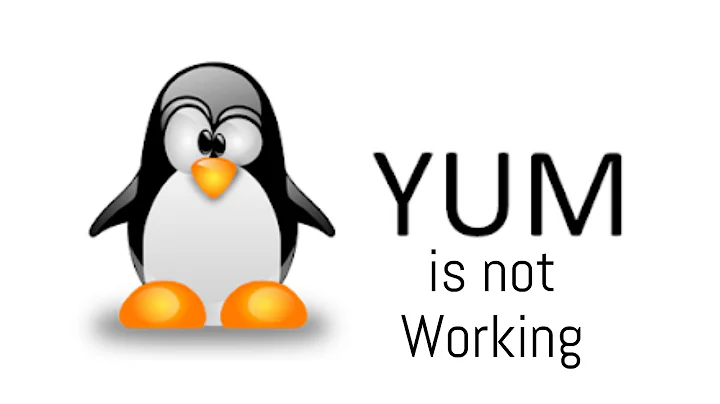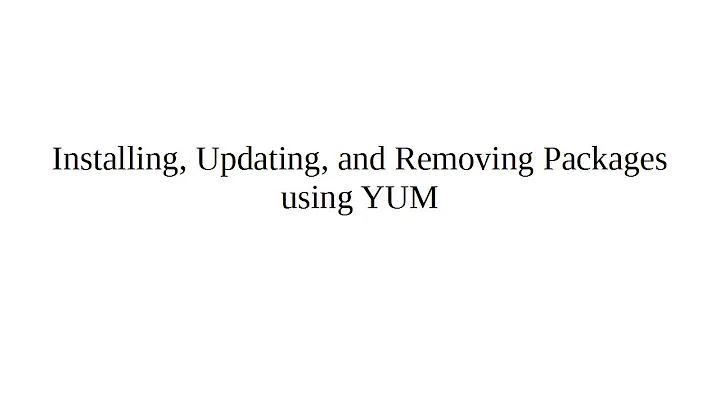How to get package info on YUM
To answer your question I'll show you what I'd do in order to install/upgrade java.
To see the current version of java installed I'd run:
java -version
To see the name of the java package which is currently installed, I'd run:
yum list installed | grep java
to install an openjdk java you'll have to run:
yum install java-1.8.0-openjdk.x86_64
As far as I know it is not possible to install java-1.8.0 just by running:
yum install java-1.8.0
as there are two versions of Java, one is the openjdk-java and the other is oracle-java.
So by supplying the -openjdk.x86.64 you actually tell yum which version of Java should be installed.
So the answer to your question "So how can I see what a package name will actually install? Or how can I search for package names instead?" is that you need to provide the exact name of the package you intend to install and that's the package which will be installed (along with it's dependancies).
In order to display files which a yum package contains, you can run the following command:
repoquery -l packagename
Example:
[root@centolel ~]# repoquery -l java-1.8.0-openjdk
/usr/lib/jvm/java-1.8.0-openjdk-1.8.0.121-1.b13.el6.x86_64/jre/bin/policytool
/usr/lib/jvm/java-1.8.0-openjdk-1.8.0.121-1.b13.el6.x86_64/jre/lib/amd64/libawt_xawt.so
/usr/lib/jvm/java-1.8.0-openjdk-1.8.0.121-1.b13.el6.x86_64/jre/lib/amd64/libjawt.so
/usr/lib/jvm/java-1.8.0-openjdk-1.8.0.121-1.b13.el6.x86_64/jre/lib/amd64/libjsoundalsa.so
/usr/lib/jvm/java-1.8.0-openjdk-1.8.0.121-1.b13.el6.x86_64/jre/lib/amd64/libsplashscreen.so
/usr/share/applications/java-1.8.0-openjdk-1.8.0.121-1.b13.el6.x86_64-policytool.desktop
/usr/share/icons/hicolor/16x16/apps/java-1.8.0.png
/usr/share/icons/hicolor/24x24/apps/java-1.8.0.png
/usr/share/icons/hicolor/32x32/apps/java-1.8.0.png
/usr/share/icons/hicolor/48x48/apps/java-1.8.0.png
How can you find the tomcat6 packages?
[root@centolel ~]# yum search tomcat6
Loaded plugins: fastestmirror, refresh-packagekit, security
Loading mirror speeds from cached hostfile
* base: centos.joinweb.co.il
* epel: mirror.nonstop.co.il
* extras: centos.joinweb.co.il
* rpmforge: mirror1.hs-esslingen.de
* updates: centos.joinweb.co.il
=========================================================================================== N/S Matched: tomcat6 ===========================================================================================
glite-security-trustmanager-tomcat6.noarch : Java trustmanager interface supporting a GSI grid name space
tomcat6.noarch : Apache Servlet/JSP Engine, RI for Servlet 2.5/JSP 2.1 API
tomcat6-admin-webapps.noarch : The host-manager and manager web applications for Apache Tomcat
tomcat6-docs-webapp.noarch : The docs web application for Apache Tomcat
tomcat6-el-2.1-api.noarch : Expression Language v1.0 API
tomcat6-javadoc.noarch : Javadoc generated documentation for Apache Tomcat
tomcat6-jsp-2.1-api.noarch : Apache Tomcat JSP API implementation classes
tomcat6-lib.noarch : Libraries needed to run the Tomcat Web container
tomcat6-servlet-2.5-api.noarch : Apache Tomcat Servlet API implementation classes
tomcat6-webapps.noarch : The ROOT and examples web applications for Apache Tomcat
Edit #1:
Okay, as I've tested it now it seems like I was wrong when I said you can't install using the yum install java-1.8.0, it works in my machine.
When I ran yum install java-1.8.0 on my test machine, it automatically suggested me the openjdk version so I guess it's the default one:
--> Finished Dependency Resolution
Dependencies Resolved
========================================================================================================================
Package Arch Version Repository Size
========================================================================================================================
Installing:
java-1.8.0-openjdk x86_64 1:1.8.0.121-1.b13.el6 base 200 k
Installing for dependencies:
java-1.8.0-openjdk-headless x86_64 1:1.8.0.121-1.b13.el6 base 32 M
ttmkfdir x86_64 3.0.9-32.1.el6 base 43 k
xorg-x11-fonts-Type1 noarch 7.2-11.el6 base 520 k
Another useful command is:
yum info java-1.8.0-openjdk.x86_64
I believe the answer you're looking for can be found here.
Related videos on Youtube
mFeinstein
Computer Engineer and once a part of Team Riobotz Interested in all aspects of software, electronics, robotics and creative stuff in general. For the curious ones, here's one of the coolest projects I ever made: https://www.youtube.com/watch?v=RQsRtQoXyVA If I helped you somehow, consider buying me a coffee at: buymeacoffee.com/Pb0mu6k :)
Updated on September 18, 2022Comments
-
 mFeinstein over 1 year
mFeinstein over 1 yearI am new to unix systems, so forgive me if I am not being clear or saying something that makes no sense.
I just created an Amazon Linux AMI machine and I saw it comes with Java 7 (1.7.0_131) but I want Java 8, so I found this thread here showing how to update your java version....and it got me very confused on how yum works.
When I do a
sudo yum search all java-1.8.0I get this list as an output:Loaded plugins: priorities, update-motd, upgrade-helper ================================ Matched: java-1.8.0 ================================ java-1.8.0-openjdk.x86_64 : OpenJDK Runtime Environment java-1.8.0-openjdk-demo.x86_64 : OpenJDK Demos java-1.8.0-openjdk-devel.x86_64 : OpenJDK Development Environment java-1.8.0-openjdk-headless.x86_64 : OpenJDK Runtime Environment java-1.8.0-openjdk-javadoc.noarch : OpenJDK API Documentation java-1.8.0-openjdk-javadoc-zip.noarch : OpenJDK API Documentation compressed in : single archive java-1.8.0-openjdk-src.x86_64 : OpenJDK Source BundleThe thread said to just type
sudo yum install java-1.8.0but There is no purejava-1.8.0option on the list. So I guess there is a package namedjava-1.8.0somewhere and the contents of this package might include some of these plugins returned by the YUM search.So how can I see what a package name will actually install? Or how can I search for package names instead?
I want this kind of control so I can be able to find the packages like
java-1.8.0and notjava-1.8.0-openjdk-headless.x86_64and be able to understand what's insidejava-1.8.0compared tojava-1.8.0-openjdk-headless.x86_64.Also, I don't want to depend on google every time I want to install something, so I can find some tutorial showing me the package name and options, like:
sudo yum install tomcat6 tomcat6-webappsWhere can I find the
tomcat6by myself? How would I know there was an option namedtomcat6-webapps? -
 mFeinstein about 7 yearsThat's funny because I did the SAME as you did when I was looking for stuff to install...and that's what made me so confused! Look at here: serverfault.com/questions/664643/… they say to run
mFeinstein about 7 yearsThat's funny because I did the SAME as you did when I was looking for stuff to install...and that's what made me so confused! Look at here: serverfault.com/questions/664643/… they say to runsudo yum install java-1.8.0 sudo yum remove java-1.7.0-openjdkand there are 2 different answers with this same commands! So apparently there is something calledjava-1.8.0I just have no idea where it is, where to find it, or what it fully does. -
 mFeinstein about 7 yearsAlso, there is this link here for Tomcat: coenraets.org/blog/2011/11/… where he says to run
mFeinstein about 7 yearsAlso, there is this link here for Tomcat: coenraets.org/blog/2011/11/… where he says to runsudo yum install tomcat6 tomcat6-webappsThis one I REALLY what to undestand wheretomcat6comes from, because I want to install Tomcat 8.5 instead, and if the commands are different I have to know. Thanks for the answer and Pessach Kasher ve Sameach :) -
 mFeinstein about 7 yearsOh, and btw I think
mFeinstein about 7 yearsOh, and btw I thinkrepoqueryis a command fromyum-utilnot native toyum. -
 Itai Ganot about 7 yearsEdited my answer.
Itai Ganot about 7 yearsEdited my answer.






